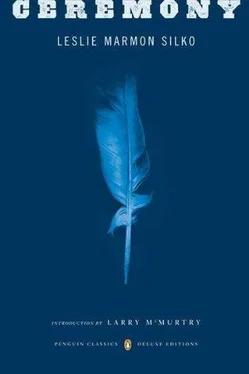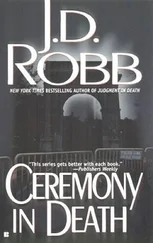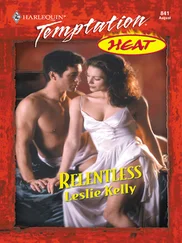“Liars and fools,” she said, rearranging the Mason jars full of peaches on the shelf, pushing them hard against each other until he thought the glass might break.
“I’ve spent all my life defending this family, but nobody ever stops to think what the people will say or that Father Kenneth will call me aside after mass to speak with me.” She straightened herself as tall as she could, because she was short and heavyset. Her eyes were full of accusations.
“It doesn’t bother me,” she said, assuming a lighter tone of voice, “but this hurts old Grandma so much.” Her words were shaky. “Our family, old Grandma’s family, was so highly regarded at one time. She is used to being respected by people.” She stopped pushing the Mason jars around and began dusting off the table where the old shopping bags were folded and stacked.
“Young people don’t understand how important it is. To be able to walk through the village without worrying or wondering what the people are whispering about you.” She wiped tears from the corners of her eyes with the hem of her apron and walked out of the storeroom. She slammed the door behind her fiercely.
Tayo always wondered how she knew that people were whispering about her as she walked out of the church; he wondered too if Auntie was lying or if she really didn’t realize that old Grandma didn’t care what anyone said. She liked to sit by her stove and gossip about the people who were talking about their family.
“I know a better one than that about her! That woman shouldn’t dare be talking about us. What about the time they found her rolling around in the weeds with that deaf man from Encinal? What about that? Everyone remembers it!” She pounded her cane on the floor in triumph. The story was all that counted. If she had a better one about them, then it didn’t matter what they said.
“I’ve been thinking,” the Night Swan said to Josiah, one evening when they were sitting in her room. She was sitting on the edge of the bed looking into the mirror, and he was sitting on the old blue armchair in the corner. “All these years you’ve done the same things,” she said. He smiled and shrugged his shoulders. “That’s how I’ve lived so long. Up until now.” She laughed at his reference to her. “My cousin Ulibarri in Magdalena wrote,” she said, “he’s selling some Mexican cattle very cheap. They are off the desert, in Sonora, and he said he thought someone up this way might want to buy them.” “I don’t know,” Josiah said, “last time there was a drought, we had to sell everything, even the sheep and goats.” “I don’t know anything about cattle,” she said, “but he said these had been living off rocks and sand.” She laughed, and went out to the kitchen to pour them some coffee. “Why are you looking so serious?” she said as she handed him the cup. “I’m thinking about the cattle business,” he said.
By late July Josiah divided his time between the cattle, which were past Flower Mountain then, still heading southwest, and this woman. Josiah didn’t mention her much any more, not since Auntie had cornered Tayo in the storeroom. He said it was better this way; Tayo wouldn’t have to lie if he didn’t know anything. Tayo helped him as he had promised, riding along the fence line between Acoma land and Laguna land. When they found tracks and sagging wires on the fences with bits of light hair caught in the barbs, they rode through the Acoma gate and brought the cows back again.
When they had finished with the cattle, there was always the sheep camp. Auntie insisted that they check on the sheepherder because she was certain that he would run off and leave the sheep penned up to slowly die of thirst, or worse yet, that the sheepherder had got drunk and burned up the little sheep-camp house. Even after they had driven over the bumps and washed-out places on the sandy road, and made sure that these things had not happened, she would be satisfied for only two or three days. Then she would be convinced that the sheepherder had lost all the sheep, and that he was too lazy to hunt for them, and the sheep were wandering in the red rocks, where coyotes would pick them off, three and four at a time. Tayo wondered where she got these ideas, because they never happened, but when she talked about them, they sounded possible, not likely, but possible, so they had to go again. At first Tayo thought it was because Auntie never trusted her sheepherders, but later on, he saw that she wanted to keep Josiah busy, too busy to go to Cubero. They had a good man working for them then, an Apache guy from White River, and he was probably the best sheepherder they ever had; but whenever she wanted to persuade Josiah to go check up on things, she would go into a long history of what the Apaches had done to the Pueblo people, dwelling especially on Geronimo. Once, Robert heard her as he was leaving for the fields. He winked at Josiah and Tayo, and then with a serious face he said, “I thought the sheepherder’s name was Mike, not Geronimo,” and walked out the door.
As dry as it was, with the grass getting thin and short, Josiah said it was a good thing to check anyway, especially in case the river started drying up and they’d have to start hauling water to the sheep again, as they had during the dry years before. They took Mike some sugar and flour and a little coffee. He never had much to say to them, but Tayo saw that he was reading some kind of book about auto mechanics. He took good care of the sheep in an offhand way, carrying the book around with him while he herded them; and when the old black mother dog had had pups, he had trained the best two for sheep dogs. Tayo mentioned the book to Josiah, and he shook his head. “Well, he won’t be around long then. Too bad. He’s a good man.” A week later the Apache left for California and they hired their cousin Pinkie again. Auntie was against it because Pinkie had black-out spells, and she said, “The whole herd of sheep could wander onto the tracks and get hit by the Santa Fe Super Chief before Pinkie woke up.” They hired him anyway and six sheep disappeared right after that, during a dust storm, Pinkie said, but he had a new harmonica and a blue pearl-button cowboy shirt they’d never seen before.
All that summer, while Josiah and Tayo watched the cattle and the sheep camp, and Robert worked in the fields each day, Rocky read magazines and ran laps at the baseball diamond twice a day. In the afternoons he hitchhiked to Paguate to see his girl friend. Auntie made it clear to everyone that it was all necessary if Rocky were to keep his football scholarship to the university. But Tayo knew that Rocky was already talking about the war and about joining the Army before he got drafted. He would be the first one ever to get a football scholarship, the first one to go with no help from the BIA or anyone. She could hold her head up, she said, because of Rocky. And she looked hard at Josiah when she made the remark, as if to let him know that there were others who prevented her from carrying herself quite so proud.
In the evenings, after they ate, Josiah would wash up, change his clothes, and go out again. Old Grandma was back in her chair beside the stove after all day outside under the elm tree, and she would listen carefully for Josiah to pour water into the tin basin. Then she would say, “Aren’t you going to rest, Josiah?” He dried his face and hands slowly, without answering her, because they both knew what she was really asking. When was this affair with this Mexican woman going to end? His hair was gray, but when he combed it and walked out the door, he was smiling and his face wasn’t tired or old. After he was gone, Auntie made an inaudible remark from the stove, where she kept her dishpan to keep the dishwater hot. She poured rinse water over the dishes so that they rattled together violently. She wiped them and put them in the cupboard, slamming the doors and dropping the frying pan down hard on top of the stove. This way they all knew she was angry, and all summer long, every night, they listened. Grandma never said anything about it; Tayo didn’t know when or how she had learned about it, or if maybe she had known all along. They got into the habit of leaving before Josiah did, or right afterward. Robert left earlier, with the excuse that he had to chop wood or see how the little apple trees behind the house were doing. Rocky wasn’t even there, because he ate most of his evening meals at Paguate with his girl friend’s family. Auntie didn’t care for that either, but Rocky was her special one, so all she said to him was “How do you like living at Paguate now?” looking angry as she said it.
Читать дальше












